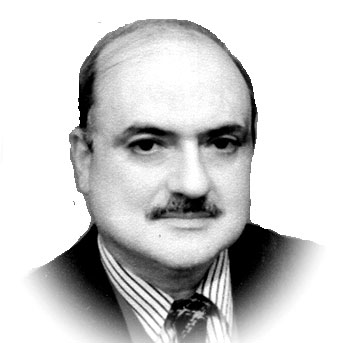Diplomacy a la carte !
THE re-organizing of our diplomatic representation abroad is in the news of late. Coming at a time when the world is reeling from the Corona-Virus Pandemic this might not raise many eyebrows.
Some weeks earlier, our intellectuals were not feeling strongly about the state of health of the bilateral relations between this country and its strategic ally. One can hardly fault them for this.
One could almost hear a collective sigh of relief when a fresh President was elected by the Americans, not that this development would have a great impact on our relations.
But one was talking about diplomacy! Where our analysts may not have been entirely on the mark is in blowing out of all proportion the role of an ambassador, in making – or marring – the relationship between the home and host governments .
Let us face it; an effective ambassador’s role can be only as good – or as bad – as the input of his or her principals back home.
Having put in well over three decades in the diplomatic service of the country, one would be justified in claiming to have learnt a thing or two about the art of diplomacy.
One may be excused, therefore, for wincing on observing some of our senior ex-diplomats – to use cricket parlance – flashing at rising balls outside the off-stump that they would have been well advised to leave well alone.
Going back several years, one of our former ambassadors to that super-power – one of the ‘memo-gate’ fame – can be cited as a case in point. Maybe, in his particular case, he was ‘more’ than a mere ambassador of his country.
But, then, it is a common failing for an ‘Ambassador Extraordinary and Plenipotentiary’, having personal links to the powers that be, to start thinking above his (or her) station.
It would be erroneous though to assume that all his acts of commission and omission were off his own bat. An ambassador can depart from his official brief at his or her own peril.
In the same vein, the plentiful praise heaped on Mr. Haqqani’s successors for having ‘brought the relationship on an even keel’ was also out of all proportion and, therefore, hardly warranted. But one is digressing.
The effectiveness or otherwise of an ambassador lies in how well – and how accurately – he or she conveys the instructions of his or her principals to the host government; as also in what manner he or she analyses – and reports to the former – the views of, and the prevailing mood in, the host country.
This is where the art of diplomacy comes into the act. Unless the ambassador concerned is conversant with diplomatic norms and practices, not only will all his or her ministrations be in vain, but also his sojourn will become a liability for his own country.
This, regrettably, has been the case with several of our ambassadors whose only qualification had been personal closeness with the powers that be at home.
The pity is that this practice is still in vogue! The first lesson that a diplomat learns the hard way is that it is not at all necessary nor, in deed, advisable for an envoy to overly love or admire the country he or she is accredited to.
Quite the contrary, if an ambassador opts to lay his or her cards on the table in so far as relations with the host country are concerned, the battle is already half lost. The mark of a good ambassador is to keep the host country guessing.
It is not for the ambassador, then, to bend over backwards to further the interests of the host country; he is required rather to protect the interest of his or her own country above all else.
If at the same time the ambassador manages to, in some way, ‘oblige’ the hosts that should be seen as a bonus, never the primary objective.
A casual look over the shoulder shows that some ambassadors have outdone their principals in proving their credentials vis-à-vis the countries of their accreditation.
With due apologies to Hussain Haqqani, he did stick his neck out in extolling the virtues of friendship with our strategic partner.
His Excellency was once quoted as stating that Pakistan should be duly thankful for the “benefits and advantages” it had obtained from America and it was time that ‘criticism and condemnation of the great American nation came to an end’. He was not the first, nor will he be the last, to fall into this trap.
Several of our ambassadors succumb to this temptation on appointment, with the result that their reporting is biased and in lavish praise of the country they have been appointed to.
The abiding lesson for an ambassador to learn is never to be too indulgent towards the host State.
If anything, it pays an ambassador to be a bit wary about the intentions of the country he or she is accredited to; and would be well advised to develop a virtual love-hate relationship with the host State. Simulation and dissimulation are qualities that can serve an ambassador well.
Though one would be the last to advise an ambassador to tell a deliberate lie, there would appear to be no harm if he or she were to withhold the truth every now and then in the interest of his/her own country.
And, lest one forgets, diplomacy is a mysterious art, not always easy to define nor in deed to fathom.
— The writer is a former Ambassador and former Assistant Secretary General of OIC.










